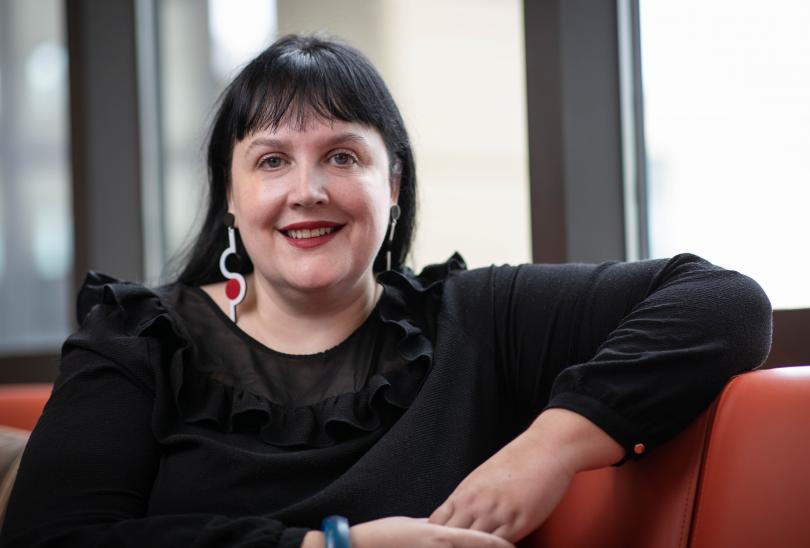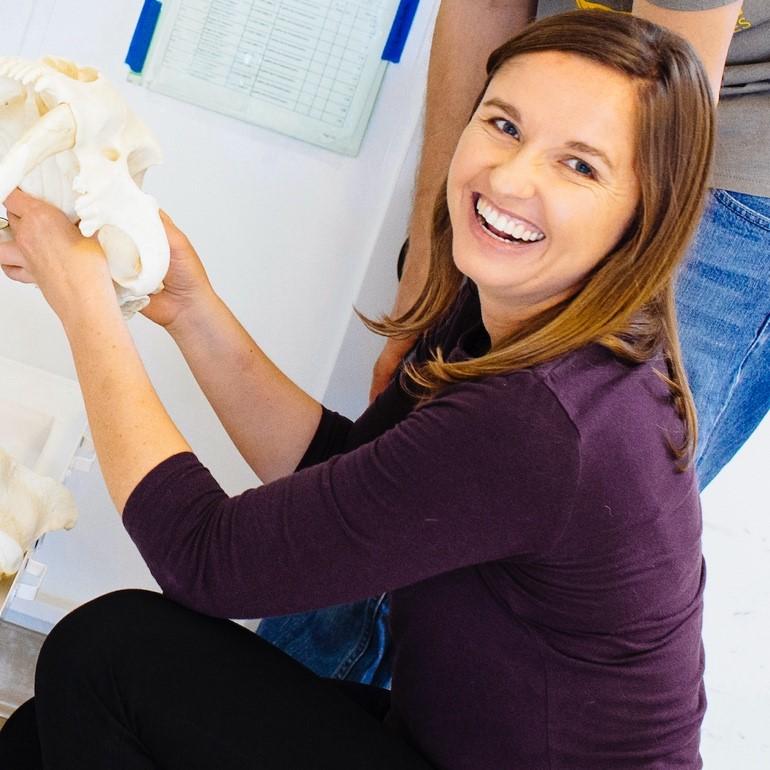"Ribosomes in Gene Regulation: Controlling the Diversity of Proteins Made in Specific Cells, Tissues, and Organisms"
 Dr. Maria Barna | Barna Lab
Dr. Maria Barna | Barna Lab
BIO:
Dr. Barna obtained her B.A. in Anthropology from New York University and her Ph.D. from Cornell University, Weill Graduate School of Medicine. Dr. Barna was subsequently appointed as a UCSF Fellow through the Sandler Fellows program, which enables exceptionally promising young scientists to establish independent research programs immediately following graduate school. She is presently an Associate Professor in the Genetics Department at Stanford University. Dr. Barna has received a number of distinctions including being named a Pew Scholar, Alfred P. Sloan Research Fellow, and top ’40 under 40’ by the Cell Journal. She has received the Basil O’ Connor Scholar Research Award and the NIH Directors New Innovator Award. She is the recipient of the Elizabeth Hay Award, H.W. Mossman Award, Tsuneko and Reiji 'Okazaki Award', American Society for Cell Biology Emerging Leader Prize, the Rosalind Franklin Young Investigator Award, and the RNA Society Early Career Award. She is presently a NYSCF Robertson Stem Cell Investigator.
Abstract:
Work from our lab has changed the view that ribosomes are passive, indiscriminate machines. Our studies suggest that the translation machinery is a more dynamic, macromolecular complex with complex and specialized roles in the cell. A major interest in the lab is centered on understanding how ribosomes dictate when and where proteins are made to direct rapid and dynamic cell fate transitions. We study both the functional roles of ribosomes in normal mammalian development and in disease states such as ribosomopathies. We employ a wide-variety of technologies including mass spectrometry, sub cellular resolution imaging, as well as sequencing platforms to characterize ribosomes and their variation at the level of protein, rRNA, and modifications. Ultimately, the goals of the lab are to know how ribosomes function in sub cellular space, across different cell types, and the biological meaning of ribosome-mediated control of gene expression towards organismal development and evolution. Our recent research efforts are also centered on understanding how changes in the translatome influence tissue regeneration and regenerative potential across different kingdoms of life.
Check out the seminar here!

